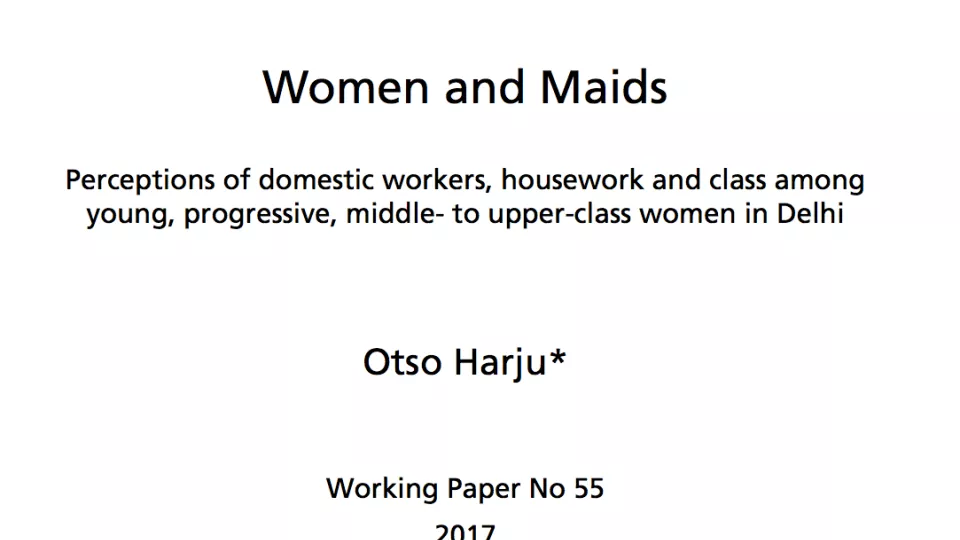During his fieldwork in the Indian capital, Harju interviewed ten young middle-class feminist women about their views on domestic workers, housework and gendered everyday expectations. His thesis “Women and Maids – Perceptions of domestic workers, housework and class among young, progressive, middle- to upper-class women in Delhi” was given the highest grade and has now been published as a working paper by the Center for Asian Studies at Lund University.
Abstract
This thesis analyses ten in-depth interviews on domestic workers, class and gender roles with ten young, politically inclined and often adamantly feminist women from the upper end of the Indian class spectrum. It aims to deepen the understanding of employer-worker relations and gendered domestic roles in contemporary Indian households. Previous literature on the middle- to upper- class employers of domestic workers in the subcontinent has tended to emphasize the uncritical attitude most exhibit towards their employment practices. Distance from physical domestic work has been noted as a key site of class distinction, and a commonality for the otherwise fractured “middle” classes. The maid is hired for the reproduction of not just everyday life but, importantly, of class. Further, since Indian men are largely removed from the sphere of domestic work, and the domestic workers are mostly women, the problems around maids have come to be seen as socially second-rate “women’s issues”. In India, maids play a central role in the age-old issues around reproductive labour.
My findings corroborate previous research and also go on to provide a perspective of potential change. Far from just accepting what has been termed an Indian ‘culture of servitude’, my interviewees exhibit a deep reflexivity and often highly critical attitude towards the idea of employing maids, as well as towards the domestic assumptions put on themselves. Generational change, the desire for democratization and increasing expectations on male partners are central themes in my participants’ discussions. At the same time, the interviewees also display an often anxious ambiguity as to whether or not they are able to resist social and parental pressures, and to live up to their own ideals. My findings emphasize the existence of a critical, progressive, highly self-reflexive yet often politically pragmatic twenty-something-year-old, largely overlooked in discussions on the ‘new Indian woman’.
